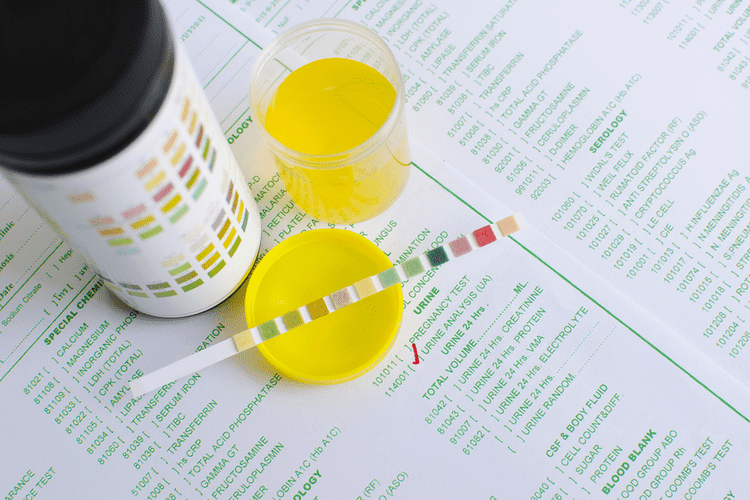This variant affects the activity of another enzyme called alcohol dehydrogenase 1B, which is involved in the first step of alcohol metabolism. One of the ways in which acetaldehyde contributes to alcohol tolerance is by promoting the production of enzymes involved in its own metabolism. Studies have shown that chronic alcohol exposure can increase the expression of ADH and ALDH enzymes, allowing the body to break down acetaldehyde more quickly. This increased enzyme activity can help to reduce the levels of acetaldehyde in the body and mitigate its toxic effects. Individuals with certain variations in the ADH and ALDH genes may experience slower metabolism of alcohol, leading to a buildup of acetaldehyde in the body. This can result in symptoms such as facial flushing, rapid heartbeat, nausea, and dizziness.

Nicotine metabolism
It’s a little more complicated than that, says addiction psychiatrist Akhil Anand, MD. About half of your susceptibility to developing a substance use disorder (SUD) can be hereditary. Genetics can mark you as more prone to use alcohol, tobacco products or drugs such as cocaine, heroin and opioids. These symptoms fall into different categories, including loss of control, physical dependence, and tolerance. One gene in particular, known as the mu-opioid receptor gene (OPRM1), has been extensively studied in relation to alcohol cravings.

Evidence Based
On the other hand, individuals with high levels of ADH and ALDH activity may be able to metabolize alcohol more efficiently and have a higher tolerance to its effects. While some individuals can handle large amounts of alcohol with no ill effects, others may have a low tolerance and experience negative consequences after just a few drinks. The question of why some people are more tolerant to alcohol than others has long been a subject of scientific inquiry. Another study focused on the gene that encodes aldehyde dehydrogenase (ALDH), an enzyme involved in the breakdown of alcohol in the body. Advances in genetic analysis and in the technology used to determine a person’s genetic makeup (i.e., genotype) now make it possible to move beyond estimates of unmeasured (i.e., latent) sources of genetic variance.
What Environmental Factors Affect Alcoholism?

By increasing awareness, individuals can better understand their own risk and take proactive measures to address it. Although the field of epigenetic interventions for alcoholism is still in its early stages, it holds great promise for improving our understanding of the disease and developing new treatment strategies. Further research is needed to identify the specific epigenetic modifications that contribute to alcoholism and to determine the most effective interventions for targeting these modifications. Studies have demonstrated that the heritability of alcoholism is estimated to be around 50-60%, indicating that genetic factors play a substantial role in the development of this disease.
- Hereditary factors often overlap with environmental influences, such as growing up in a family with a history of alcohol use disorder.
- By identifying these comorbidities, individuals can seek appropriate treatment and support to address both their alcohol-related problems and any co-occurring conditions.
Genetic factors account for approximately 50% of the risk for alcohol dependence, meaning some people are more vulnerable due to their DNA. While environmental factors also play a role, genetics contribute significantly to how alcohol affects the brain and body. Understanding the genetic influences on alcohol sensitivity is important for several reasons. Firstly, it can help explain why some individuals may be more prone to developing alcohol use disorders or experiencing negative consequences from alcohol consumption. Additionally, this knowledge can inform personalized approaches to alcohol prevention, treatment, and interventions.
- There are gene variations that could predispose a person to mental illnesses like depression and schizophrenia.
- This has led to groundbreaking insights into why some individuals might experience adverse reactions to alcohol, offering a protective factor against excessive consumption.
- Some people seem to need larger quantities of alcohol to feel its effects, often referred to as an increased alcohol tolerance.
- Education often plays a crucial role, not only for individuals living with AUD, but also for their families, friends, and communities.
- Advancements in genetic research have allowed scientists to identify specific genes that may contribute to the development of alcoholism.
- These factors—which included the familial environment and the nonfamilial environments of peers, schools, and neighborhoods—accounted for 76 percent of the variation in drinking initiation in both boys and girls (Rose et al. 2001b).
For example, a study conducted on mice found that chronic alcohol exposure led to hypermethylation of genes involved in alcohol metabolism, resulting in decreased alcohol tolerance. One theory is that these specific variants of the D2 receptor gene can lead to decreased dopamine release in response to alcohol consumption. This means that individuals with these variants may need to consume more alcohol to achieve the same level of pleasure and reward as individuals without these genetic variations. Alcohol tolerance, the ability to withstand the effects of alcohol, varies greatly among individuals. While some people may be highly sensitive to alcohol and quickly experience its effects, others may be able to consume larger amounts without noticeable impairment. This variability in alcohol tolerance can partly be attributed to genetic polymorphisms, variations in a amphetamine addiction treatment person’s DNA sequence.
Researchers continue to examine the potential links between biology, environment, personal experiences, and alcohol use disorder (AUD). Among the many questions being studied, one of the most persistent is whether alcoholism may have genetic origins. Although no single cause has been found, some evidence suggests that certain influences, both genetic and otherwise, may play a role in shaping how a person responds to alcohol consumption. To reduce the risk of developing alcohol addiction, individuals should take steps such as setting drinking limits, finding alternative coping strategies, and surrounding themselves with supportive influences.
While it can be difficult to completely avoid the effects of alcohol, those with a higher tolerance can drink with more confidence knowing that their genetics have given them an advantage. While more research needs to be done to better understand the role of genetics in alcohol tolerance, it is clear that there is a strong genetic influence that can help individuals better understand their relationship with alcohol. Alcohol tolerance, or the ability to consume alcohol http://safeiso.kr/how-to-handle-peer-pressure-for-kids/ without becoming overly impaired, is a complex phenomenon that has been studied for many years. It is known that some people can drink more than others without becoming inebriated, and recent research suggests that genetics may play a role in this difference. Studies have linked variations in certain genes to alcohol tolerance, indicating that genetic variation may be an important factor in determining how much alcohol a person can consume without being affected. Additionally, external factors such as social and cultural influences can shape an individual’s alcohol tolerance.
The General Role of Genetic and Environmental Factors in Alcohol-Related Behavior
Alcohol tolerance refers to the body’s ability to metabolize and process alcohol, determining an individual’s response to its effects. While tolerance to alcohol can vary widely among individuals, it has been found that genetics play a significant role is drinking genetic in determining one’s tolerance levels. Overall, genetic tolerance to alcohol is a complex and multifactorial trait, influenced by various genetic factors that affect alcohol metabolism and sensitivity. One particular gene of interest is the ALDH2 gene, which codes for an enzyme involved in metabolizing alcohol. Some individuals possess a variation of this gene that results in reduced enzyme function, leading to an accumulation of acetaldehyde, a toxic byproduct of alcohol metabolism. This accumulation can cause flushing, nausea, and other unpleasant symptoms, which may discourage further alcohol consumption.
- Participants with any liver disease or viral hepatitis before baseline were excluded.
- Alcohol use disorder (AUD), as described by the American Psychiatric Association, is a mental health condition involving an inability to manage or stop drinking alcohol despite its negative effects.
- Understanding how alcohol affects the brain, body, and decision-making—especially for those with a genetic predisposition—can help family members pause before reaching for that drink.
- Studies have demonstrated that the heritability of alcoholism is estimated to be around 50-60%, indicating that genetic factors play a substantial role in the development of this disease.
- Alcohol use disorder (AUD) is diagnosed based on specific criteria outlined in the Diagnostic and Statistical Manual of Mental Disorders (DSM-5).
Variations in this gene may result in altered functioning of the brain’s reward system, leading to a heightened desire for alcohol. Another variant, ADH1C, has been found to have a similar effect on ADH enzyme activity. Those with the ADH1C variant may also have a higher rate of alcohol metabolism and may experience heightened sensitivity to alcohol. “The people who have the minor allele variant of the SNP convert ethanol to acetaldehyde very rapidly. And that causes a lot of negative effects,” said Sanchez-Roige.
Factors influencing AUD
It is important to note, however, that genetic testing is not a substitute for responsible drinking, and should not be used as an excuse for excessive drinking. Family members who witness alcohol abuse may also develop unhealthy drinking habits. Growing up in an environment where drinking alcohol is normalized can further increase the risk of developing alcohol addiction. Understanding the role of genetic predisposition can help individuals make informed decisions about their drinking habits. This article explores how alcoholism and genetics are linked, the science behind the so-called alcoholic gene, and the interplay between genetic and environmental risk factors.
Additionally, genes can also influence an individual’s sensitivity to the effects of alcohol. Research has demonstrated that genetic variations can influence an individual’s vulnerability to alcohol cravings. Genetic factors can affect the brain’s reward system, which is closely linked to the development of cravings. Specific genes, such as those involved in the production and metabolism of neurotransmitters like dopamine and serotonin, have been found to play a role in alcohol cravings. Alcohol cravings are complex physiological and psychological responses to the consumption of alcohol. While environmental and social factors play a role in the development of alcohol cravings, genetic factors also significantly contribute to an individual’s susceptibility to craving alcohol.
ShareJUN
2023

About the Author:
Stuart Bahn is a professional guitarist and guitar teacher in London, England. He is the creator of the digital course Be A Guitar Teacher to help aspiring guitarists build careers as freelance guitar teachers. He is also the author of several apps for musicians, including 'Music Theory - Chords in Keys' and 'Guitar Fretboard Trainer'